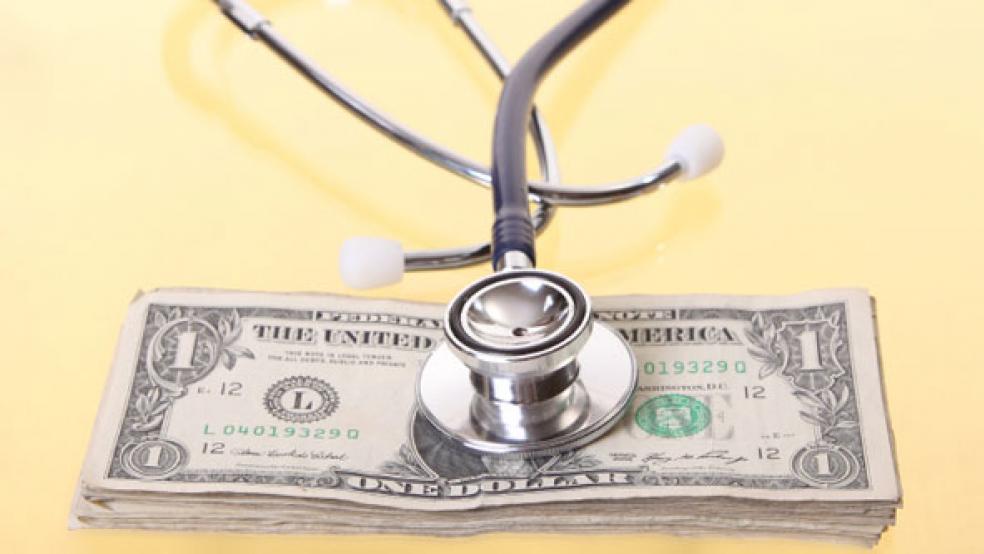Health care spending grew at its lowest rate on record last year amid a relatively sluggish economy that has prompted consumers to spend more cautiously.
A new report published in the journal Health Affairs Wednesday by the Centers for Medicare and Medicaid Services shows health spending grew by just 3.6 percent in 2013—the lowest year-to-year increase ever recorded. This is down from the already low average growth rate of 3.9 percent for the previous four years.
Related: Keep Health Care Costs from Ruining Your Retirement
“Growth in national health spending has remained fairly stable since 2009, increasing between 3.6 percent and 4.1 percent annually,” Micah Hartman, a statistician for CMS’s Office of the Actuary, said during a call with reporters. He added that total health-care spending in the United States was about $2.9 trillion, or 17 percent of the U.S. economy.
“The key question is whether health spending growth will accelerate once economic conditions improve significantly; historical evidence suggests that it will,” the report said. Health officials primarily attribute the record-slow growth to the still-sluggish economy, but also say new provisions under Obamacare aimed at curbing delivery costs have also played a role in the slowdown.
WHY THIS MATTERS
While growth in health care spending is at its lowest rate on record, what really matters is what happens next. Will spending on health care tick up dramatically as the economy improves? Will Obamacare help keep down the costs? The answers will be critical to the U.S. economy and the national debt.
Unsurprisingly, spending growth slowed down in 2009 in the wake of the financial crisis and the Great Recession. Some experts suggest that a number of factors—like the shift to higher deductible health insurance policies—could keep spending down. Another factor that CMS officials said could maintain slow health spending are new Medicare cost controls implemented under the president’s health care law.
Related: High Deductible Plans Have More People Delaying Treatment
The U.S. spent about $2.9 trillion on health care last year, according to the report. The total annual spending works out to $9,255 per person, the highest in the world. Private health insurance and Medicare accounted for most of the spending, or about $962 billion and $586 billion, respectively.
Both programs saw slower growth than the previous year. Meanwhile, Medicaid spending growth ticked up from 2012 to 2013, likely explained by the Affordable Care Act’s Medicaid expansion.
Out-of-pocket spending by consumers rose 3.2 percent in 2013, but consumers may already be facing steeper increases in out-of-pocket costs, partly as a result of Affordable Care Act plans that feature lower premiums and higher deductibles. Though that shift may contribute to the lower growth in health care spending, it also comes with other consequences: Right now, more people than ever before say they have delayed treatment because of medical costs—and many of these people do have health insurance.
CMS officials also said the Affordable Care Act’s Medicaid expansion could also drive an increase in health spending because payments to doctors will increase.
Ultimately, while health care experts welcomed another year of slow growth in health care spending, they agree that it’s still too early to tell just how long the trend might last.
Top Reads From The Fiscal Times:
- Executive Order Gives Immigrants Medicare, Social Security
- How Obama Marginalized the Democratic Party
- The Real Reason Hagel Resigned As Defense Secretary





